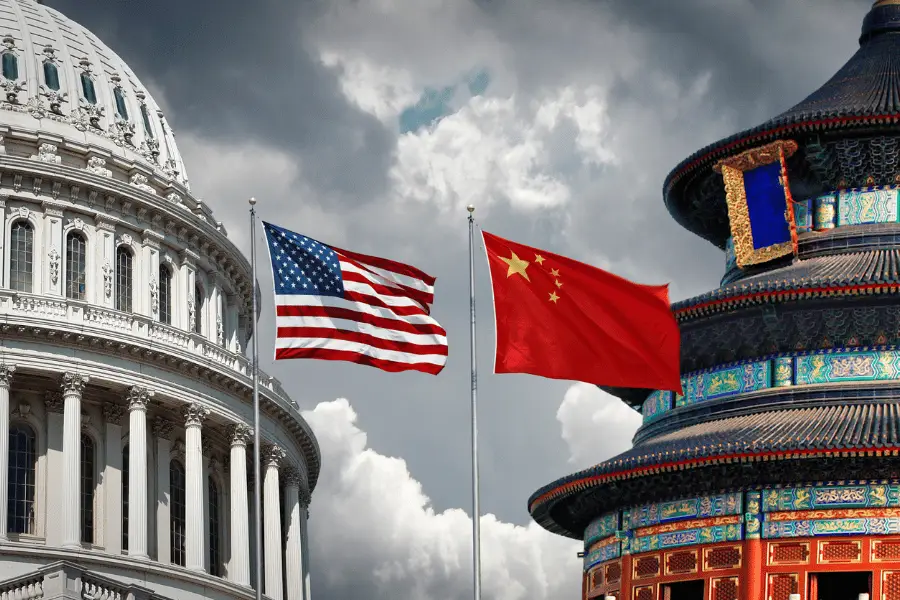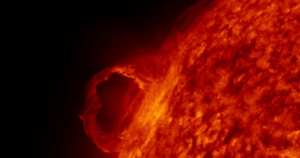
The tensions between China Tensions between China and the United States have reached record levels since the countries normalized diplomatic relations more than four decades ago, with the U.S. government's order for China to close its Houston consulate being just the latest example. Many experts worry that a war between China and the U.S. could eventually break out.
Under President Trump's administration, actions and reprisals have intensified sharply in several areas. These include defense, trade, technology, as well as human rights, among other categories. This, despite his repeated expressions of admiration for Chinese President Xi Jinping. With President Biden, this trend is strengthening. Moreover, in time with a possible war between China and the USA at stake.
Growing sanctions that could lead to war between China and the US
The administration is currently weighing a blanket ban on travel to the United States by the 92 million members of China's ruling Communist Party. Expulsion of any members currently in the country is also a possibility. That would likely prompt retaliation against American travel and second homes in China.
"We are in a dangerous, precipitous downward spiral," said Orville Schell, director of the Center on USA-China Relations to the Asia Society. He added that this situation is "not without cause, but lacks the diplomatic skills to stop it." The confrontation, he said, "has reached a new stage, moving from specific challenges to a clash of systems and values."
Craig Allen, president of the U.S.-China Business Council, said he was alarmed by the growing invective from two superpowers. Which, let us remember, represent 40% of the world's economic output. If these two powers are yelling at each other and slamming doors, then the world is a very unstable place. Companies are not able to plan.
Here's a look at what's happened in recent years to exacerbate tensions:
Coronavirus and anti-Chinese racism

Mr. Trump and his minions have blamed China for the spread of the coronavirus, which first emerged in the central city of Wuhan late last year. They have repeatedly described the virus in racist and stigmatizing terms, calling it the Wuhan virus, the China virus and the Kung flu.
On July 4, Mr. Trump declared that China “must be held fully accountable.” The administration also canceled funding and ordered the severing of ties with the World Health Organization, accusing it of encouraging shortcomings in China’s initial response to the outbreak.
For its part, China has rejected the administration’s attacks on the virus and criticized the U.S. government’s poor response to the outbreak. Chinese propagandists have also promoted the counter-theory without any evidence. It says that U.S. soldiers may have been the initial source of the virus during a visit to Wuhan.
To date, no one can yet say what the source of Covid is.
A severe test on commercial links
Mr. Trump was elected in 2016, in part, on the strength of his accusations against China. He argued that China was exploiting trade relations with the United States by selling far more than it bought. Once in office, he imposed a series of punitive tariffs on Chinese goods. In response, China retaliated, sparking a trade war that has dragged on for years. Although a truce was declared in January with the signing of a “phase one” trade deal, most of the tariffs remain in place.
U.S. ships and aircraft in the South China Sea in July, in a photo released by the U.S. Navy.
U.S. ships and aircraft in the South China Sea in July, in a photo released by the U.S. Navy.
The Trump administration has stepped up its challenges to China’s claims to the South China Sea. That includes control of vital sea lanes. Last week, Secretary of State Mike Pompeo called China a major security threat. He also said that most of China’s claims in the region are “completely illegal.” That has increased the risks of military clashes between Chinese and American naval forces in the Pacific. These tensions could at any time trigger a war between China and the United States.
An ever-widening battle over technology

China has long been accused by successive U.S. administrations of stealing American technology. The Trump White House has escalated the accusations by seeking an international blacklist of Huawei, China’s largest technology company, calling it a front for China’s efforts to infiltrate other countries’ telecommunications infrastructure for strategic purposes.
The company's chief financial officer, Meng Wanzhou, has been detained in Canada since December 2018. That follows an extradition warrant to the United States on fraud charges. Last week, Britain announced it was backing the United States by banning Huawei products from its high-speed wireless network.
Journalist Expulsions Are Blatant Signs of Possible War Between China and the US
Accusing Chinese state media of spreading propaganda, the Trump administration has restricted the number of Chinese citizens allowed to work for Chinese news outlets in the United States. In response, China has expelled journalists from The New York Times, The Washington Post and The Wall Street Journal. It has also taken other steps that suggest new obstacles for the American press in China. Concerned about the potential restrictions, The New York Times announced last week that it was moving much of its news center from Hong Kong to Seoul, South Korea.
Student expulsions
The Trump administration has moved to cancel the visas of thousands of Chinese students and researchers in the United States. At least for those with direct ties to universities affiliated with the People’s Liberation Army, according to U.S. officials familiar with the planning. Such expulsions point to possible additional restrictions on education. Here, too, the Chinese government could retaliate with its own visa bans on Americans.
Suppression of democratic freedoms in Hong Kong
Last November, Mr. Trump, with bipartisan support, signed legislation that could penalize Chinese and Hong Kong officials who suppress dissent by democracy advocates in Hong Kong, the former British colony and Asian financial hub to which China has granted some autonomy.
In May, Mr Trump said he was taking steps to end Hong Kong’s preferential trade status with the US. This came after China passed a sweeping new security law that could be used to stifle any expression China deems seditious. Chinese officials have denounced the measures and vowed to retaliate.
Repression of Uighur Muslims in Xinjiang

This month, the Trump administration imposed sanctions on a number of Chinese officials, including a senior Communist Party member, over China's human rights abuses in the Xinjiang region against the Uyghur minority largely Muslim part of the country.
Beijing has vowed retaliation against U.S. institutions and individuals it deems guilty of “egregious” conduct in matters involving Xinjiang, a vast western expanse of China where authorities have placed a million people in labor camps and imposed intrusive surveillance on others.
What will be the outcome of the tensions that could lead to war between China and the USA?
At present, it is difficult to predict with certainty how tensions between these two countries will develop. However, the trigger could well be Taiwan. China is very specific on this subject, "It will not hesitate to go to war if Taiwan declares its independence." In this context, the USA seems to be playing with fire by confirming its support for Taiwan if the latter were attacked by China.
According to these latest elements and the various points of divergence, an armed conflict between these two powers is unfortunately not an impossible scenario. The future could therefore hold some very unpleasant surprises for us.
Why invest in a bunker in case of war between China and the USA
Such a scenario would certainly signal the end of our civilization as we know it. These different tensions in the world are therefore encouraging more and more people to turn to effective protection solutions in the event of a war between China and the USA. Indeed, the risk of resorting to nuclear weapons would be obvious in this situation.
A fallout shelter is the best solution to deal with a world war situation. Contrary to popular belief, the price of an anti-atomic bunker is accessible to ordinary mortals! Contact our experts to receive a no-obligation quote. They will define with you, free of charge, the best solution to implement according to the configuration of your place of residence.



